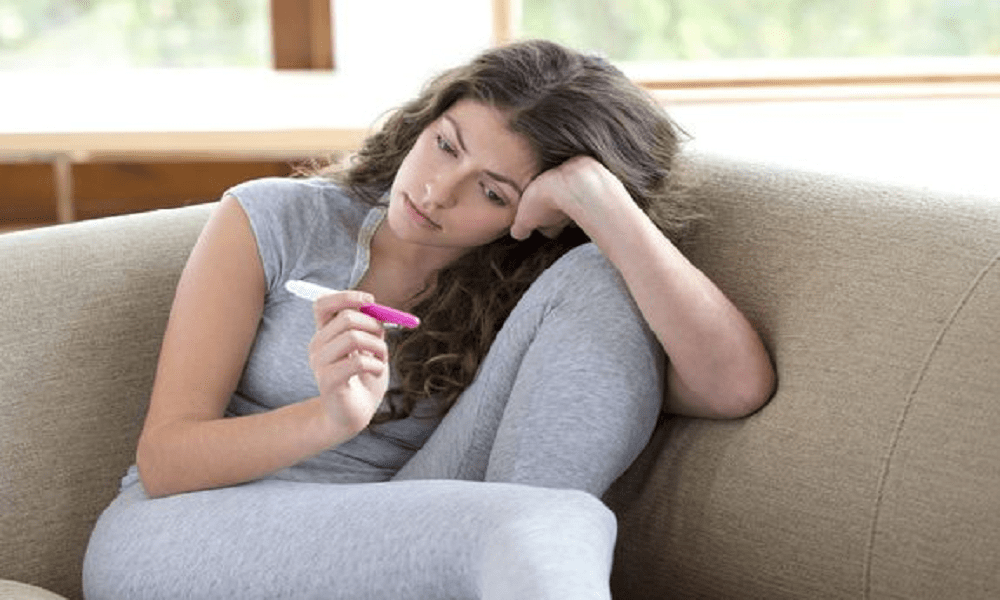Men's Health, Neuro & Mental Health
Is anxiety after pregnancy is normal?
Anxiety After Pregnancy
Most of them have heard of antenatal and postnatal depression (PND) where a woman develops depression during pregnancy or after the birth of a child. What is often not as well known is that women can also experience symptoms that are more anxiety-related rather than the depression-related. In actual fact, many of them are affected by anxiety than the depression during this time.

Anxiety is a normal form of human emotion which plays an essential role in dangerous situations. When we sense a threat our body undergoes a number of changes including physiological changes which includes the release of large amounts of adrenaline and also an increased heart and breathing rate. These changes prepare the body to fight or take flight from the threat. People who are suffering from anxiety, however, experience these changes when there is no real threat that is present or alternatively the anxiety is out of proportion to the actual threat.
While it is normal for every woman to feel some anxiety about their role as a mother, for women with anxiety, these fears and concerns reach a point where you can become disruptive to everyday living.
Symptoms Of Anxiety:
Women who have anxiety during the pregnancy or after having a baby can typically feel on edge, restless, irritable and have a difficulty concentrating. Sleep disturbances, muscle tension, changes in appetite and/or weight are also very common. Women may excessively worry about things including their health and/or the health of their baby and this can also result in behaviors such as obsessive cleaning and/or checking on the baby. Women can also be affected by panic attacks, which are characterized by sweating, heart palpitations, trembling, dizziness, hot flushes or chills, shortness of breath and chest discomfort.
Risk Factors:
There are a number of risk factors for experiencing anxiety during pregnancy or after having a baby. They include:
- Lack of emotional and practical support (from partner, family or friends).
- Personality types (those who are nervous, worry a lot, perfectionists, poor coping skills).
- A personal or family history of anxiety or other mental and emotional conditions.
- Pregnancy and delivery complications.
- Challenging baby behaviours (problems with sleeping, feeding, settling).
- Stressful life events like relationship breakdown, loss of employment/unemployment, moving, financial difficulties, bereavement.
There are few steps to take for moms and moms-to-be who struggle with anxiety:
Talk To Someone

Find a therapist whom you trust. Although it might feel that it will never end, postpartum anxiety responds very well to treatment.
Acknowledge Your Feelings

Instead of trying to refuse how you feel or try to push it aside, which will only make it worse, so admit to your feelings and accept that it is OK to have anxiety.
Do Something Else

Focusing on your anxiety makes it worse, so when you are experiencing it, have a list of things that will distract you from the ruminations. Take your baby for a walk, brew a cup of tea, and call a friend.
Exercise

Studies suggest that regular exercise can also help to decrease the symptoms of anxiety. Whether it is your favorite class at the gym, or a run in your neighborhood, or a yoga class, make time to move.
Seek Friends

Spending time with your best or close friends or joining a new mother’s group, where moms are honest and genuine, can help you realize you are not alone.
Get Sleep

When you have a newborn, sleeping is more essential. But if you were dealing with anxiety, it can make a huge difference in how you feel. Ask your partner or a family member to pitch in or a baby nurse so you can get some sleep.
Set limits
If photos of your close friend’s seemingly perfect life on Facebook make you feel worse, select the unfollow option or rein in your social media habit. Also, set few limits with people in your life who bring you down, and surround yourself with those who are positive and brings out the best in you.
Be Kind To Yourself
Instead of running you ragged trying to make sure you do everything perfectly, find shortcuts, accept what you can’t do, and also understand that your best is enough.
Anxiety is a major health issue and that severe anxiety during pregnancy and after childbirth is associated with less adaptive coping. It appears essential to gain further knowledge about the long term effects of anxiety and coping strategies on women, and whether their coping strategies subsequently increase thereafter.




